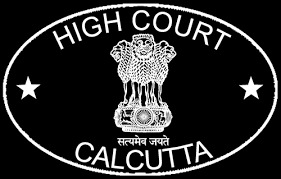Ashok Bhan, J.@mdashJoga Singh plaintiff-respondent filed a suit for mandatory injunction against one late Shri Sarwan Singh. The suit was decreed by the trial Court. Sarwan Singh filed an appeal before the first appellate Court. During the pendency of the appeal Sarwan Singh died on 8-6-1989. On 25-10-1989, an application tinder Order 22 rules 3 and 4 C. P. C. was filed by the sons of Sarwan Singh deceased for being brought on record. This application was rejected by the first appellate Court holding it to be time barred because the same had been filed after a lapse of 41/2 months whereas the same was required to be filed within a period of 90 days as provided under Article 120 of the Limitation Act (hereinafter referred to as the Act). Legal representatives of Sarwan Singh deceased have filed the present revision petition challenging the impugned order dated 8-3-1990 passed by the first appellate Court.
2. Learned counsel appearing for the petitioner has argued that the impugned order of the first appellate Court runs contrary to the view taken by this Court in Smt. Har Devi and Anr. v. Joginder Singh (1988) 94 P.L.R. 183 in which it has been held that a case like the present one would be governed under Article 137 of the Limitation Act which is a residuary article and provides a limitation of three years and not the provisions of Article 120 of the Act which are not applicable.
3. I have gone through the said judgment and find force in the submission of learned counsel appearing for the petitioner. This Court in Smt. Har Devi''s case (supra) held as under:-
"Article 120 of the Limitation Act reads as under:-
------------------------------------------------------------------------------------
Description of suit Period of limitation Time from which
period begins to
run
------------------------------------------------------------------------------------
120 Under the Code of Ninety The date of death of
Civil Procedure, days plaintiff, appellant,
1908 to have the defendant or respondent
representative of a as the case may be.
deceased plaintiff
or appellant of a
deceased defendant
or respondent made
a party.
------------------------------------------------------------------------------------
The trial Court seems to have held the application to be barred by time as having been filed more than 90 days from the death of Ram Gopal, taking into consideration the provisions of Article 120 of the Limitation Act. However, this provision is not applicable when the application was filed by the legal representative of the deceased. Such a case would be dealt with under Article 137 of the Limitation Act, which is a residuary article and provides for a period of:-three years. This matter was considered by S.S. Kang J. in Janak Singh and Anr. v. Vasanda Ram 1985 H.R.R. 82. In that case the defendant had died. An application for being impleaded as a party to the suit was brought by the legal representatives; In para 4 of the judgment it was observed that no limitation was prescribed for making such an application. Provisions of Article 120 were not applicable to such an application It was held as under :-
The language employed in this Article leads to an irresistible conclusion that a period of 90 days is provided for filing of an application to have the legal representatives of the deceased-plaintiff or an appellant or of a deceased defendant or respondent made a party. This Article is not attracted when the application is made by the legal representative to get himself impleaded as a legal representative. The use of words ''to have'' is full of meaning. It connotes that one person wants to have another person to be impleaded as a party. When a legal representative of a defendant files an application that he should be impleaded as a party, the application is not to have him impleaded; rather it is to get him impleaded.''
Similar view was taken by J. V. Gupta, J. in Paramjit and Ors. of Gurgaon v. Tara Chand 1986 H R.R. 66. In view of the judicial pronouncements, as referred to above, the application filed by the present petitioners, who are legal representatives of Ram Gopal plaintiff, could not be dismissed as barred by time".
The impugned order being contrary to the view taken by this Court deserves to be set aside.
4. Accordingly, this revision petition is accepted, the impugned order is set aside; the application for heirs impleaded as legal representatives of Sarwan Singh deceased is allowed and the petitioners are ordered to be impleaded as defendants is place of Sarwan Singh deceased. No order as to costs.

